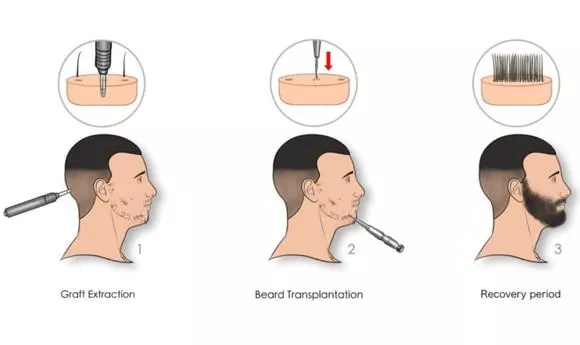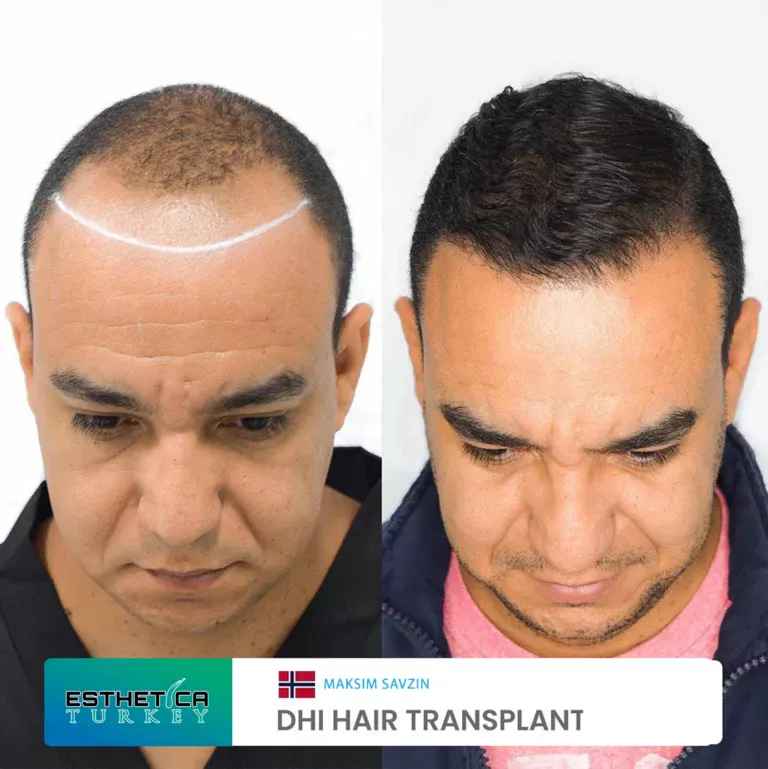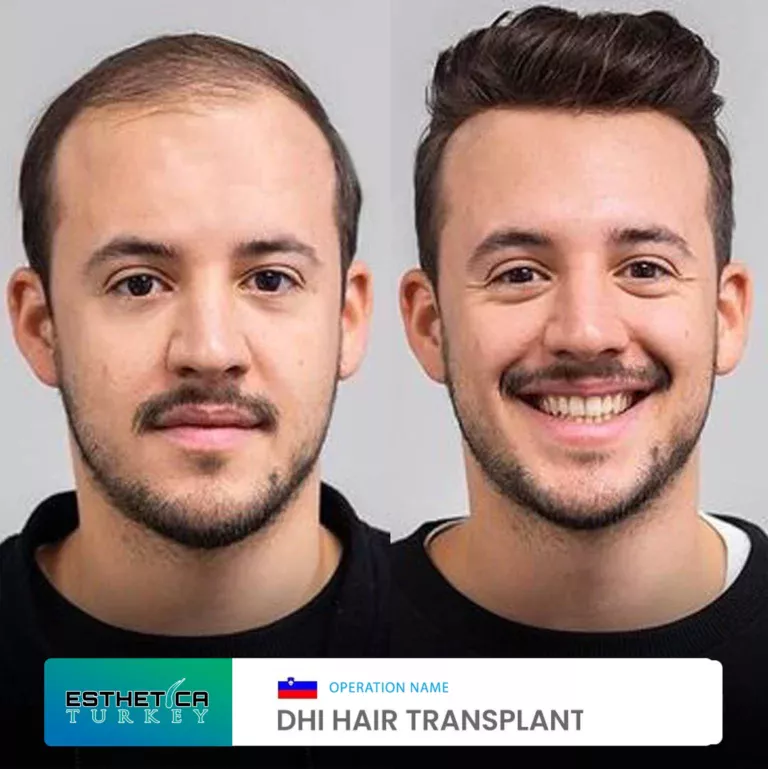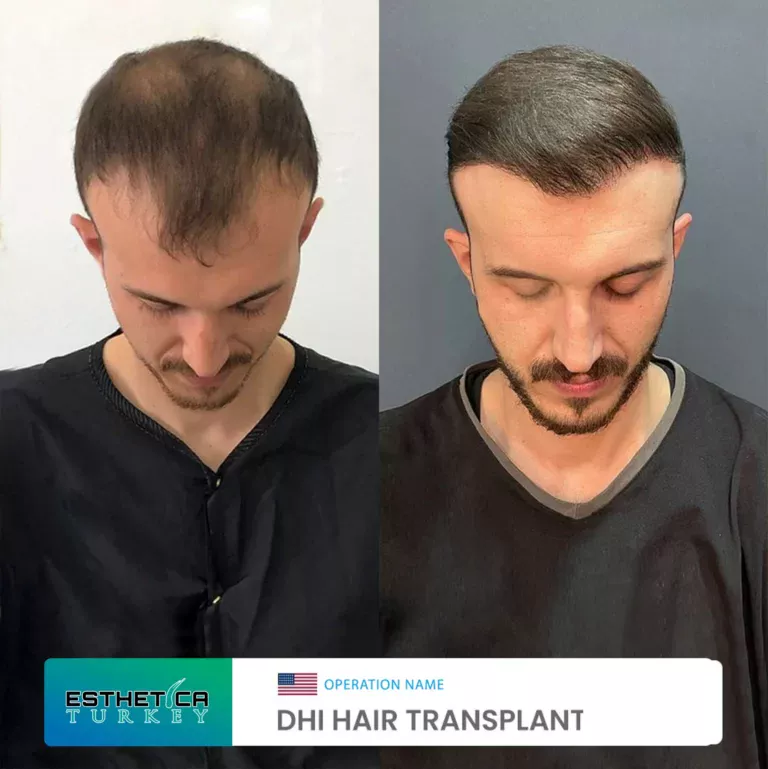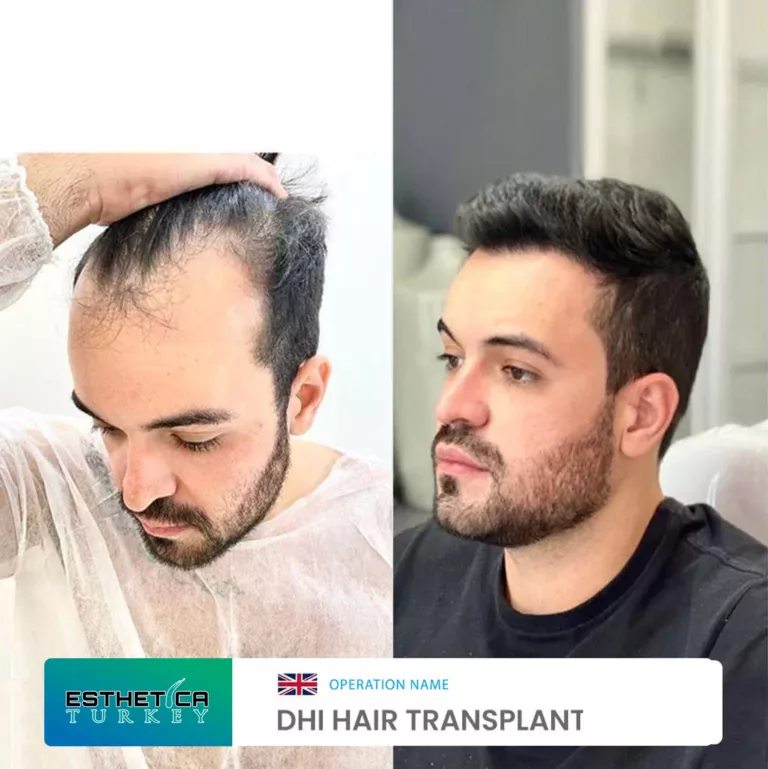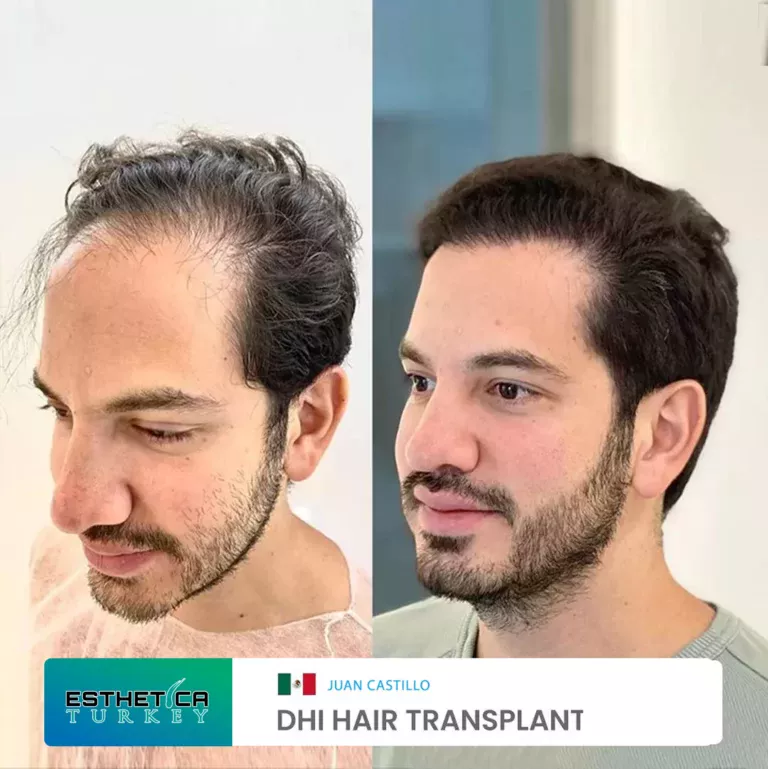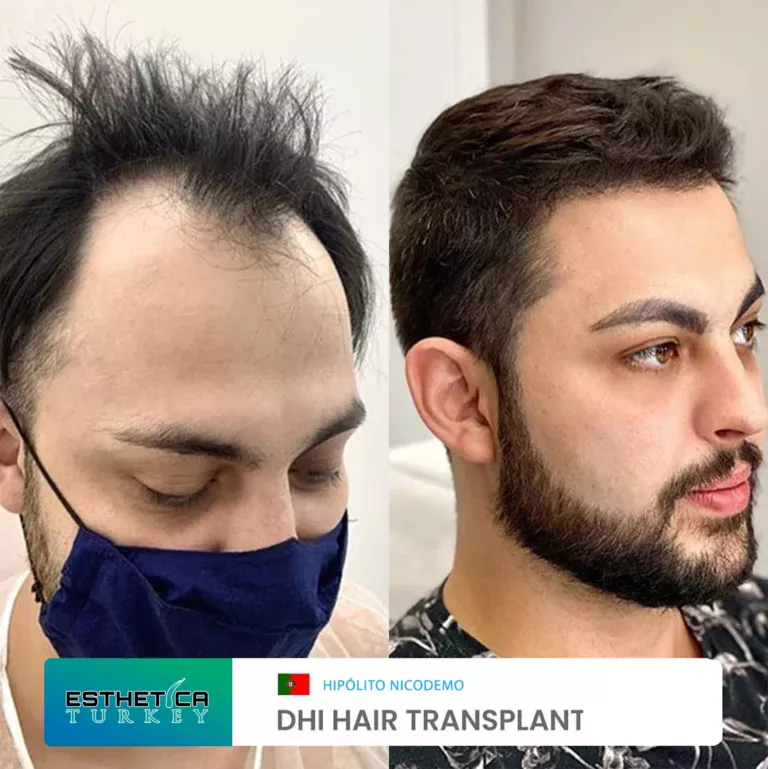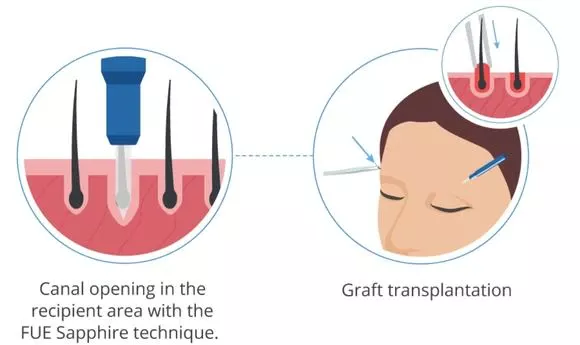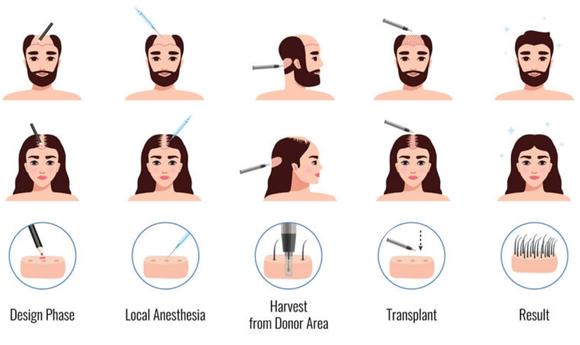Achieve a Fuller, More Masculine Look
Welcome to our clinic’s website, where we provide valuable information about the transformative procedure of beard transplant in Turkey. In this article, we will explore what beard transplant entails, the different types available, and what patients can expect before, during, and after the operation. If you are considering a beard transplant to achieve a fuller, more masculine look, read on to learn more.
What is Beard Transplant?
Beard transplant is a surgical procedure that involves the transplantation of hair follicles from the scalp or other parts of the body to the beard area. This procedure is suitable for individuals who have sparse or patchy facial hair growth, facial scarring, or genetic factors that limit beard development. Beard transplant can help create a more defined and thicker beard, enhancing facial aesthetics and boosting self-confidence.
Types of Beard Transplant:
1. Follicular Unit Extraction (FUE): FUE is the most common technique used for beard transplants. Individual hair follicles are extracted from the donor area, typically the back of the scalp, and transplanted into the beard region. FUE offers precise control over the placement and density of the transplanted hair, resulting in a natural-looking beard.
2. Direct Hair Implantation (DHI): DHI is a specialized technique that involves the extraction and implantation of hair follicles simultaneously. With DHI, the surgeon uses a pen-like device to create tiny incisions and directly implants the hair follicles into the beard area. This technique provides high precision and minimal handling of the grafts.
Before the Operation:
Before undergoing a beard transplant, patients will have a consultation with a hair transplant specialist. During this consultation, the specialist will assess the patient’s beard area, discuss the desired beard shape and density, and determine the suitability for the procedure. Medical history, medications, and expectations will also be evaluated to ensure a safe and successful transplant.
During the Operation:
Beard transplant is typically performed under local anesthesia on an outpatient basis. The surgeon will extract healthy hair follicles from the donor area using the chosen technique (FUE or DHI). These follicles are then meticulously implanted into the beard area, following the desired pattern and density. The procedure duration depends on the number of grafts required and the complexity of the individual case.
After the Operation:
After a beard transplant, patients can expect some redness, swelling, and minor scabbing in the recipient area, which usually subside within a few days. The transplanted hairs will initially shed, but new hair growth will gradually occur in the following months. It is crucial to follow post-operative instructions provided by the specialist, including gentle care of the transplanted area and avoiding certain activities or products that may interfere with the healing process.
Beard transplant in Turkey offers a transformative solution for individuals seeking to enhance their facial appearance and achieve a fuller, more masculine beard. By understanding the procedure, the different techniques available, and the pre- and post-operative care, patients can make informed decisions and embark on a journey to a more confident self. Consult with our experienced hair transplant specialists to discuss your goals and receive personalized guidance throughout the process.

